
Ashley Yeager is the associate news editor at Science News. Previously, she worked at The Scientist, where she was an associate editor for nearly three years. She has also worked as a freelance editor and writer, and as a writer at the Simons Foundation, Duke University and the W.M. Keck Observatory. She was the web producer for Science News from 2013 to 2015, and was an intern at the magazine in the summer of 2008. She holds a bachelor’s degree in journalism from the University of Tennessee, Knoxville, and a master’s degree in science writing from MIT. Her book, Bright Galaxies, Dark Matter and Beyond, on the life of astronomer Vera Rubin, will be published by MIT Press in August.

Trustworthy journalism comes at a price.
Scientists and journalists share a core belief in questioning, observing and verifying to reach the truth. Science News reports on crucial research and discovery across science disciplines. We need your financial support to make it happen – every contribution makes a difference.
All Stories by Ashley Yeager
-
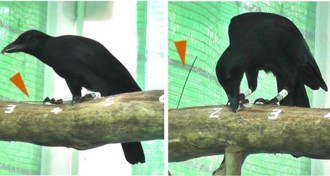 Animals
AnimalsCrows safeguard sticks to speed future food-finding forays
New Caledonian crows safeguard the sticks they use to find food. As the risk of losing the tool increases, the more protective the birds become.
-
 Health & Medicine
Health & MedicinePlaytime at the pool may boost youngsters’ bodies and brains
Learning to swim early in life may boost kids’ learning in language and math.
-
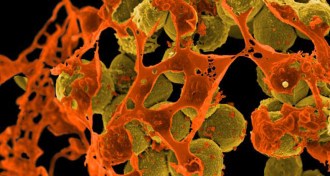 Genetics
GeneticsQuicker sepsis diagnosis may be a step closer
Identifying genes linked with sepsis may make it possible to develop a blood test to diagnose the infection days sooner than current methods.
-
 Health & Medicine
Health & MedicineToo much light slows brown fat, suggesting link with obesity
Brown fat is supposed to be the friendly kind, but making the days longer with artificial light may turn it into an enemy in the battle against obesity.
-
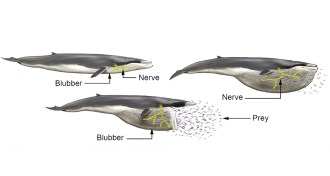 Animals
AnimalsStretchy nerves help some big whales open wide
Blue whales and their closest relatives have stretchy nerves near their mouths so they can open wide and swallow a lot of prey.
-
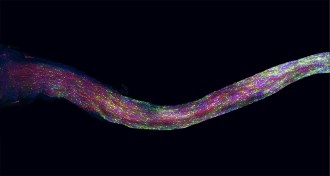 Genetics
Genetics‘Brainbow’ illuminates cellular connections
A mouse’s optic nerve fluoresces in a rainbow of colors. The image offers a detailed look at nerve-protector cells called oligodendrocytes.
-
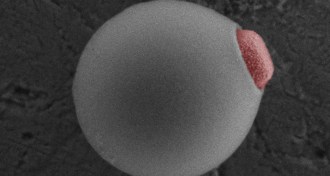 Physics
PhysicsTiny particles propel themselves upstream
Light-activated, human-made particles can align themselves with the flow of a fluid and swim upstream.
-
 Paleontology
PaleontologyThis dinosaur’s ride may have been a glide
A new dino called Yi qi may have taken to the skies with wings akin to those of pterosaurs and flying squirrels.
-
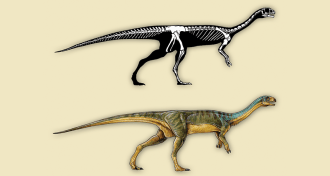 Paleontology
Paleontology‘Frankenstein’ dinosaur was a mash-up of meat eater and plant eater
Fossils of a bizarre-looking dinosaur found in Chile are challenging ideas about how dinosaurs adapted to their environments.
-
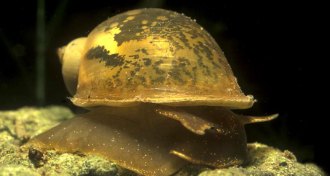 Life
LifeBolder snails grow stronger shells
Bold snails have tougher shells than shy snails. Understanding what drives snails to develop such differences is a bit of a challenge.
-
 Tech
TechSmart card taps track clogs on London’s Tube
To make public subway systems more efficient, researchers track smart card taps and flag problem stations.
-
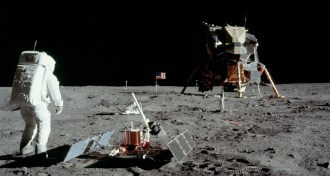 Planetary Science
Planetary ScienceBefore moon landings, scientists thought dust or crust might disrupt touchdown
Moon dust didn’t swallow spacecraft as was suggested in the 1960s. Successful exploration since that has changed our view of the moon.